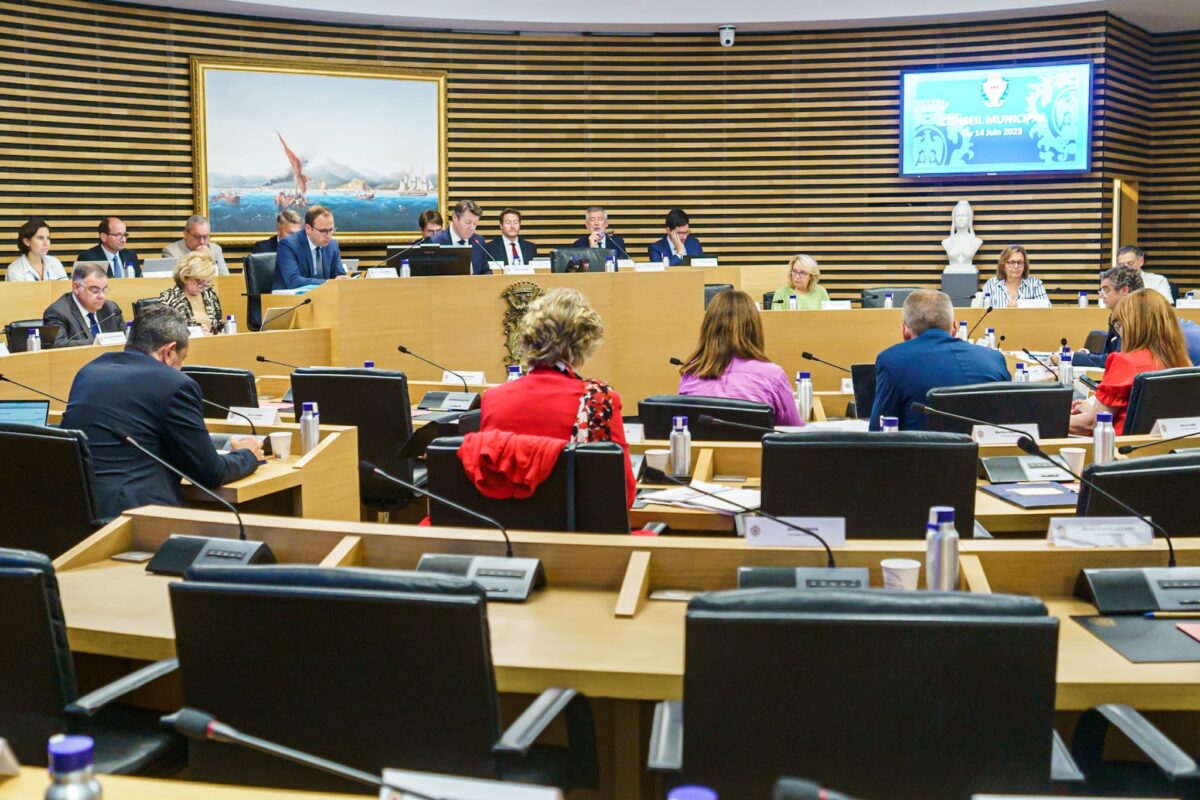
The Nice City Council, meeting on October 17, 2024, discussed security measures, budget priorities for 2025, and cross-border relations with Italy. Christian Estrosi, the mayor of Nice, opened the session by emphasizing the global climate emergency and mentioned recent disasters.
On October 17, 2024, Christian Estrosi, the mayor of Nice, began the city council meeting by expressing his gratitude to the city’s staff and collaborators, particularly for their handling of the recent weather warnings. The mayor recalled the natural disasters in Europe, such as those affecting Romania and the Czech Republic, highlighting the global climate emergency. Once the Council was opened, reports and discussions followed for long hours; here are the key points:
The importance of protecting public officials
The first deputy mayor, Anthony Borré, introduced a report on measures to protect public officials by recalling recent tragedies. He mentioned the tragic murder of Lilian Dejean, a municipal officer and 49-year-old father, on September 8 in Grenoble. The deputy mayor continued, highlighting that Nice had already implemented measures to protect its officials, notably using protective cameras. However, he deemed it necessary to further strengthen this system to provide better security to those who ensure the smooth operation of public services daily.
Within the council, reactions were almost unanimous. On the left, Hélène Granouillac, an environmentalist municipal councilor, spoke, emphasizing that “the poison of violence is spreading throughout society.”
Only Sylvie Bonaldi, an unaffiliated councilor, expressed reservations about the scope of the document. According to her, the report only protects against external violence towards public officials but does not consider internal tensions, which can also harm their well-being. She argued that rather than reacting after the fact by enhancing the legal protection of officers, it would be more appropriate to prevent such situations from arising. Anthony Borré deemed these comments “out of touch.” Despite these debates, the text was adopted without difficulty, with only one abstention.
The fight against road violence
The discussion then turned to a text dedicated to the fight against road violence and victim assistance. Anthony Borré painted a grim picture of the situation in France, marked by an increase in refusal to comply and driving under the influence of drugs. The first deputy highlighted several recent local tragedies: the death of Jérémy Boulon, a Nice firefighter killed by a hit-and-run driver on the Promenade des Anglais in June; Éric Comyn, a gendarme killed in Mougins on August 26 under similar circumstances; Kamilya, a young woman struck down by a motorcyclist in Vallauris; and more recently, the death of a cyclist in Paris.
Facing this situation, the majority proposed a partnership with the Antoine Alléno Association, created following the tragic death of Antoine Alléno, 24, killed in May 2022 by a hit-and-run driver. This association fights against road violence and helps victims and their families.
The partnership is structured around three axes: improving support for victims, conducting awareness and prevention operations, and implementing new tools to reduce road risks.
The project also aims to install new “public interest” radars. Necessary measures, according to Anthony Borré, to reduce tragedies related to road insecurity. “The situation is such that we must take additional measures,” he asserted firmly. This point did not provoke any contention within the council.
Philippe Vardon (Retrouver Nice) took advantage of this discussion to pay tribute to national and municipal police officers. The municipal councilor did not miss the opportunity to criticize the left, stating that they, in his words, “should focus more on road criminals than on police officers who save lives by stopping them.”
The project was eventually adopted without contest or abstention, proving that the fight against road violence is a very current topic and considered essential by all.
The ambitious Southern Alps Alliance
The Nice City Council, after a one-hour break, resumed in the early afternoon with the presentation of a new ambitious project: the Southern Alps Alliance. This union would bring together the Nice Côte d’Azur metropolis with the Italian provinces of Imperia and Cuneo. This alliance aims to strengthen cross-border relations while facilitating access to European funding, particularly on crucial issues such as transport, combating climate change, and public services.
Christian Estrosi defended this initiative, presenting it as a major economic and cultural opportunity. The project would, for example, connect Nice to Milan in 1h45 and to Genoa in one hour. The mayor also expressed his desire to “get closer to Turin,” recalling that the Piedmontese city has long maintained close ties with Nice.
Members of both the majority and the opposition praised this initiative. Laurence Navalesi, a municipal councilor, expressed her enthusiasm for this project by highlighting its cultural and educational benefits. She particularly emphasized bilingualism, which she believes should be strengthened in both Nice schools and Italian institutions.
On the opposition side, the environmentalist representative Fabrice Decoupigny expressed support for this agreement but called for vigilance on the Roya Valley: “We cannot allow the devastation of an Alpine valley in our territory.”
Rémi Sauvat